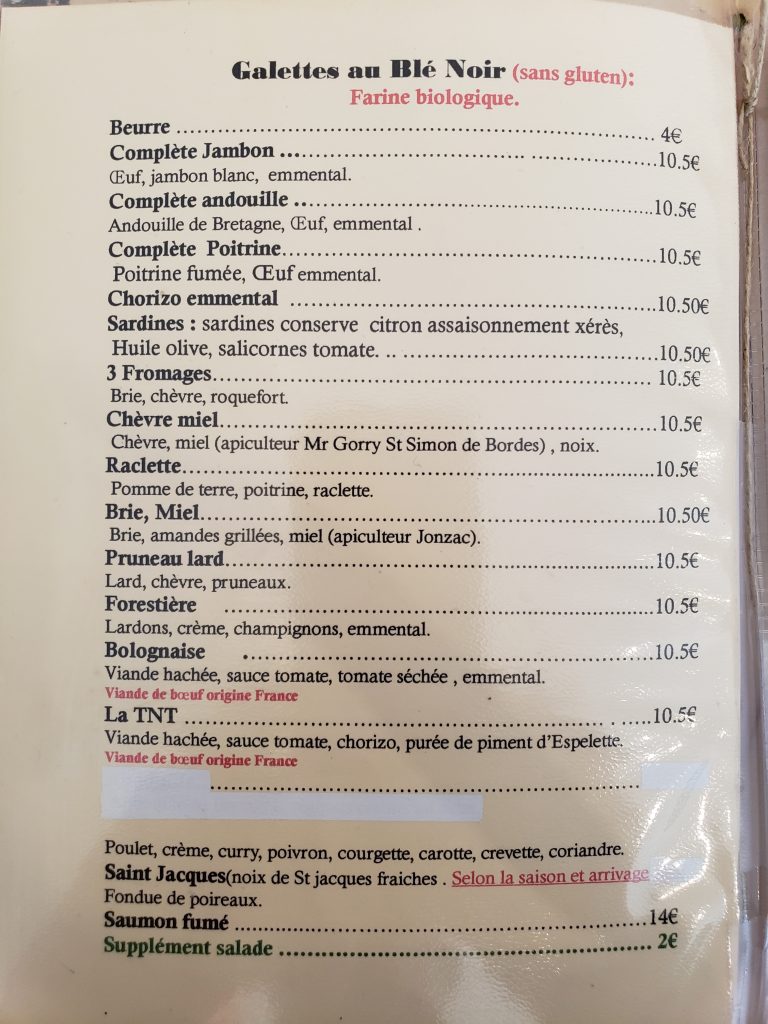
I’ve lived in France for about a year and a half now, and I’ve gotten used to it. There was a viral story recently about a couple who went back to America after eleven months. Like others in the “stuff about moving to France” club, that story has inspired me to give a few words of advice. I’m going to skip what I’ve said before, because if you can’t at least say bonjour, au revoir, s’il vous plaît, merci you shouldn’t be considering even visiting France, because you won’t like it here. That said, here is what I am going to write about.
The pace of life is different in France. In America we’re used to having the means to push through to success quickly; the quicker the better, in fact. In France, it pays to be patient. For example, I started trying to apply for my residence permit (carte de long sejour) last February. I managed to do so successfully in April. I had an interview at the Prefecture (county administration is the closest thing in the States) in July, and was told that my card would arrive in November. All is in order. It is now November 26th, and my card has not arrived. There is nothing I can do. My temporary permit runs through mid-February, so I’m legal, so what I do is go on with my life and know that my resident card will, some day, appear in the mail. If that sort of thing seems like something you couldn’t endure, you’ll need to find somewhere else to live. Or stay put, whichever. I got a comment on an expat group that my experience with this was “light speed.” I was worried about this, and quite a lot. Until one day I decided not to worry about it any more, but just to trust the French system to work things out eventually. Not only have I felt better, but things have been happening as expected. Some advice for dealing with French bureaucracy:
- Be sure that you know everything that you have to submit when first applying for whatever it is you apply for, and gather all of that information and documents before you start.
- Most things can be applied for online, but you will, at certain times, need to appear somewhere in person and, preferably, interact with a bureaucrat at least mostly in French.
- It will take forever for you to receive whatever it is that you have applied for. But it’s great when the thing arrives. My latest was my Carte Sanitaire, or national health insurance card. Just relax, live your life as if it will work out, and it almost always will. Work out, I mean.
You will have to learn French. You don’t need to speak like a native, but you have to speak and understand well enough to get along in a French speaking society. This seems reasonable to me, but here are some points about learning French:
- You cannot learn French quickly. So forget it. If you took French in school, that may help, but the first thing you should do is de-emphasize all the conjugations and grammar and syntax, and emphasize simply conversing in the language. I can’t stress that enough: you must be able to hold normal, non-technical conversations with reasonable ease. You will have an accent. You will mess up. Those things are okay. If you want to fit in to France, you just need to understand basic French, enough to make some small talk, even though French people use a lot less small talk that Americans.
- It took me four years of intense study to be able to use French at a B1 level, which is the level I discussed above. It’s roughly defined as “able to get along in normal society without undue problems.” You cannot simply devote six weeks to becoming “fluent in French,” which is pretty much a meaningless phrase in the first place.
- To make it as fast as possible, a couple of things help. Maybe more than a couple. One, use French whenever you can. If they hear your accent and switch to English, bonus for you! I’ve had conversations where I spoke French, and they spoke English, and we’ve gotten along fine. We both got some practice, and we both understood the other person. Ultimately, understanding is the most difficult thing about learning a new language, though, and you’ll have to expose yourself to lots of French. Try French programs on Netflix, with subtitles probably in English initially, and in French as you get better.
- Written French and spoken French are not the same language. They could be, but Cardinal Richlieu set up the Academie Française to keep the language “pure.” That very idea brings me to “and the horse you rode in on” but it explains why spelling French words is so difficult. There are at least five ways to represent what in English is the sound of a long “A”.
There are things that are almost impossible to get in France. Decent Mexican food, for example. Oh, they have Mexican, but they don’t use spice in it. You can read that again if you find it odd. Mexican food without spice is, well, it isn’t Mexican food. Fruits and vegetables are mostly seasonal, with some exceptions. For instance, right now, Thanksgiving time, you can’t find any strawberries. Turkeys can be hard to come by, although the local Lidl stores had some last week, and they were, while smaller than in the US, pretty ordinary, dressed turkeys. We plan to eat one on Thursday. French food, famous for being wonderful, uses herbs, not spice, so even if they do use some pepper, it won’t be at a level you’re used to. In the supermarkets, the American food section tends to feature Old El Paso. We have found some decent salsa, though, and one local store has a shelf featuring a variety of hot sauce, including Cholula, which is my favorite. You’ll have to learn how to find and/or order cuts of meat or certain vegetables. Zucchini is Courgette. Keep that in mind.
You will need a French drivers’ license. A few states (Ohio and Colorado among them) have reciprocity, most do not. Within one year of moving here you are supposed to have a French license. Without reciprocity you must pass two tests, one written (it’s online) and a practical. They are very strict, but few people fail completely. Keep in mind that it will take several months out of your life to get a license, and plan accordingly.
That’s all for now. When more things occur to me I’ll post them. I hope this helps somebody either decide to move or not, or to organize better before they move. Until next post, Au revoir!
